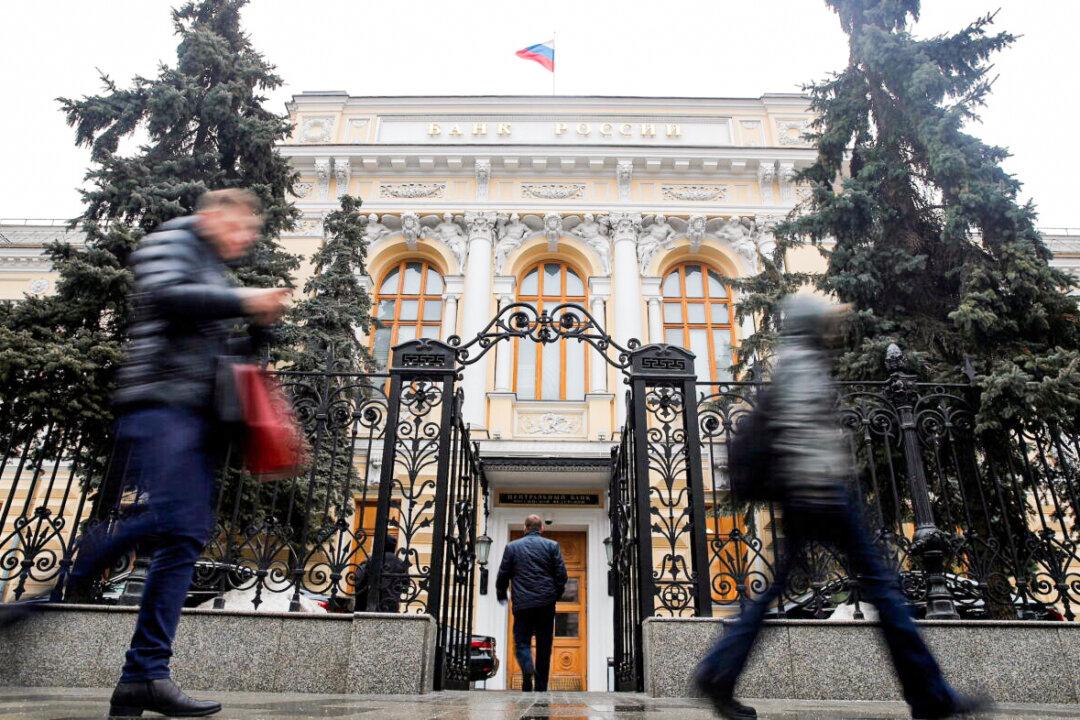Stock trading at the Moscow Exchange partially resumed on Thursday, with the MOEX Russia Index closing the day with gains. The stock market last traded on Feb. 25, a day after Russia invaded Ukraine.
The Bank of Russia had stated on Wednesday that trading activity would restart on Thursday for 33 shares, with the market remaining open between 9:50 a.m. to 2:00 p.m., Moscow time. Short-selling is banned. The MOEX index rallied on Thursday, closing with a 4.37 percent gain.





